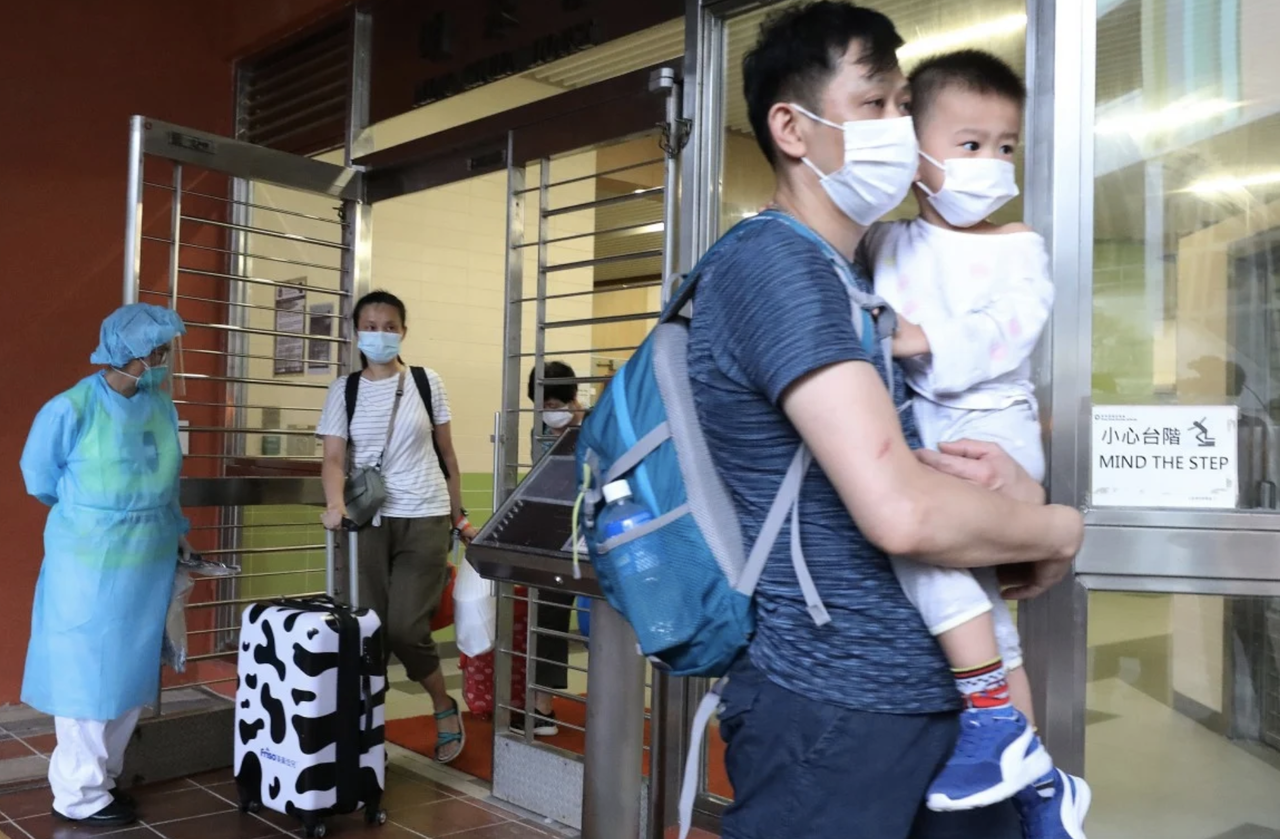As Hong Kong reimposes new social distancing restrictions and orders gyms and arcades to close, while asking restaurants to close dine-in service in the evenings, one of its top virus experts is warning the city state might be on the cusp of its biggest and deadliest outbreak yet, and that Hong Kongers must be careful to do their part to help stop SARS-CoV-2 from spreading.
Professor Gabriel Leung, dean of the University of Hong Kong’s medical school and a frequently quoted voice whose statements and views help influence the government’s response, says he believes there are a least 50 hidden cases in the community, many caused by international travelers according to the SCMP.
Moreover, the doctor warned, apparently citing evidence obtained from local researchers, that a new mutation had been discovered in Hong Kong – a mutation that, according to Dr. Leung, has caused the virus to become 30% more infectious. He highlighted Kowloon East and Sha Tin as two areas of heightened risk, and insisted that the city state provide more resources for the elderly there.
Like all statements about mutations, this should be taken with a grain of salt, though some research certainly does suggest that minor variations that affect how the virus attaches to the human ACE2 reception could make the virus more infectious.
“This is the start of a sustained massive local outbreak the likes of which we have never seen before,” Leung said during a radio interview on Sunday. The day before, HK health authorities warned that a third wave of the virus appears to be the most serious by far, as at least 61 people in the city are believed to have been infected, or highly suspected to have been but are awaiting final test results.
Unlike when SARS swept through Hong Kong’s financial district in 2003, Hong Kong has been largely spared by COVID-19, with a total of roughly 1,500 cases and only a handful of deaths. Still, officials have remained on guard, and Dr. Leung warned that the location of the latest cases suggests that the city didn’t do a good enough job suppressing several known clusters. Saturday’s new local infections arose from restaurants in Ping Shek Estate of Kwun Tong district and in Jordan of Yau Tsim Mong district, along with an old folks home in Tsz Wan Shan.
“It is very obvious that when the government relaxes social-distancing measures, the pandemic situation gets worse,” said Professor Yuen Kwok-yung, a microbiologist at the University of Hong Kong.
“There were many restaurants around the elderly care centre in Tsz Wan Shan, including a cha chaan teng frequented by taxi drivers. Many of the reported cases lived in areas of East Kowloon such as San Po Kong, Wong Tai Sin, Kwun Tong, Yau Tong, and Tseung Kwan O,” Leung said.
During the interview, the doctor urged every Hong Konger to do their part, otherwise the effort will fail.
“It is very obvious that when the government relaxes social-distancing measures, the pandemic situation gets worse. The change is immediate,” he said.
Yuen said Hongkongers needed to be more cautious again and avoid eating out, as the virus could easily transmit from one person to another in enclosed spaces if people did not wear masks.
However, he said even if the government tightened social-distancing measures immediately and to the strictest possible degree, it would not work without the cooperation of city residents.
“Social-distancing rules worked in March because everybody was on high alert and cooperating,” he said.
“If everyone takes immediate measures now by wearing masks and practising good hand hygiene, Hong Kong’s cases will decrease within next seven to 14 days.”
In addition to Dr. Leung’s remarks, another scientists from HKU, the microbiologist Professor Yuen Kowk-yung, made a few additional remarks during a TV interview of his own, including acknowledging that suppressing all spread as businesses reopen is never easy.
But the most important action that the government can take would be to increase the number of tests done daily.
Speaking on a television programme on Sunday, HKU microbiologist Professor Yuen Kwok-yung said the current wave of new infections was almost certainly due to the lifting of social-distancing measures.
“It is very obvious that when the government relaxes social-distancing measures, the pandemic situation gets worse. The change is immediate,” he said.
Yuen said Hongkongers needed to be more cautious again and avoid eating out, as the virus could easily transmit from one person to another in enclosed spaces if people did not wear masks
However, he said even if the government tightened social-distancing measures immediately and to the strictest possible degree, it would not work without the cooperation of city residents.
“Social-distancing rules worked in March because everybody was on high alert and cooperating,” he said.
“If everyone takes immediate measures now by wearing masks and practising good hand hygiene, Hong Kong’s cases will decrease within next seven to 14 days.”
Yuen also accused the authorities of not screening enough people for the virus.
[…]
“Residents should be able to just walk into the clinics and get tested, instead of waiting for an appointment,” he added.
In recent days, Hong Kong has been running some 4,000 to 5,000 tests a day: “We will not be able to achieve wide-scale screening within the community at this pace,” Dr. Yuen said. For the city to succeed, it needs to make hard choices about restricting travel, while also requiring some financial support from Beijing.
Too bad none of this is covered under that new ‘National Security’ law.
